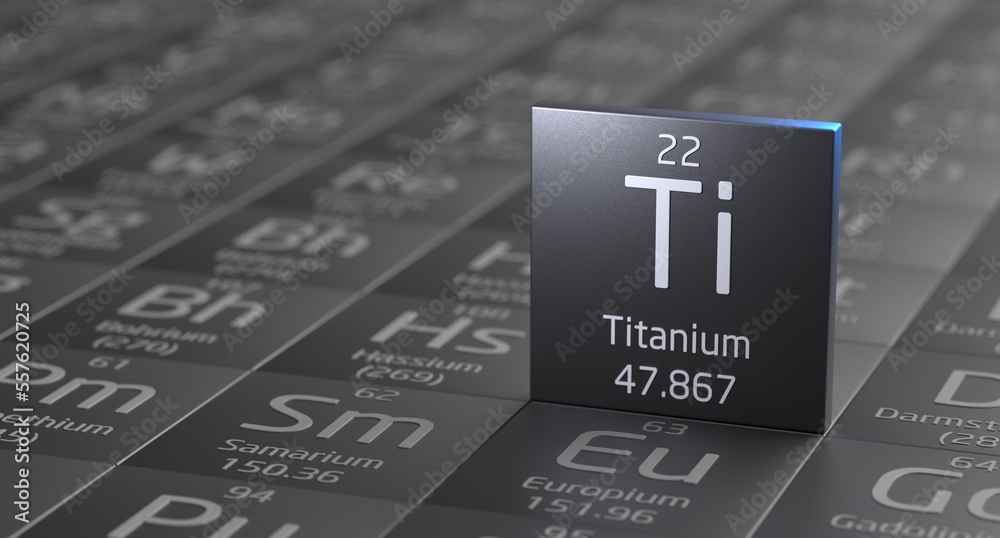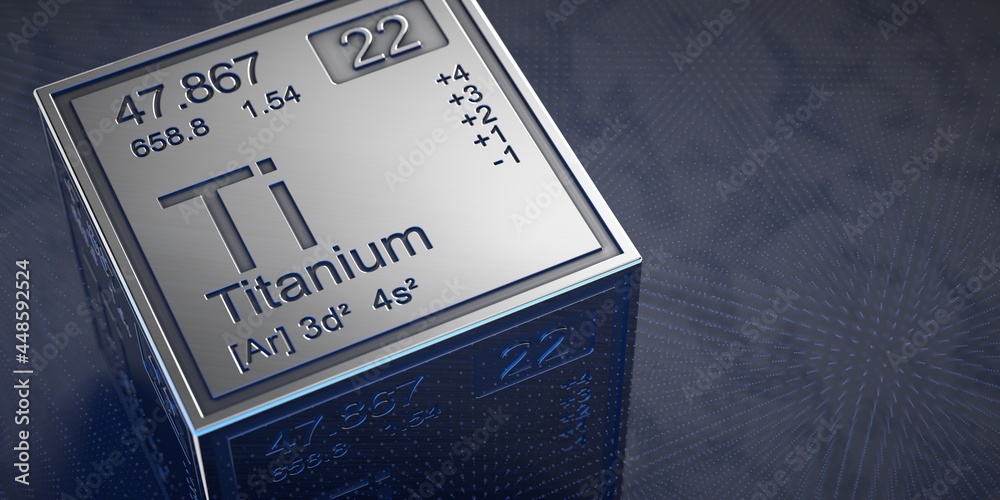Introduction: Why Titanium Is Considered a Superior Material in Various Industries
Titanium is highly valued across industries, from aerospace to medical and outdoor equipment, thanks to its unique properties. Known for its exceptional strength, lightweight, and durability, titanium stands out as a versatile material with applications ranging from implants to high-performance sporting goods. But what exactly makes titanium so special?
Titanium offers a combination of strength, lightweight, corrosion resistance, biocompatibility, and temperature resilience that is difficult to match. These characteristics allow it to perform reliably under demanding conditions, making it a preferred choice for a wide range of applications.
Let’s explore the top 10 characteristics and functions of titanium that make it such a revolutionary material.

Lightweight Yet Exceptionally Strong
Titanium is renowned for its high strength-to-weight ratio. It’s as strong as steel but nearly 45% lighter, making it an ideal choice for applications where both strength and weight are critical factors.
Special Function:
• Aerospace and Automotive Applications: Titanium’s light weight improves fuel efficiency in aircraft and high-performance vehicles while providing structural integrity.
This characteristic is why titanium is often used in places where reducing weight without sacrificing strength is essential.
High Corrosion Resistance
One of titanium’s most outstanding features is its natural corrosion resistance. Titanium forms a passive oxide layer that protects it from rust and chemical reactions, even in harsh environments like seawater.
Special Function:
• Marine and Coastal Use: Titanium is ideal for ship parts, offshore structures, and any application exposed to saltwater, where other metals might corrode.
I find titanium’s corrosion resistance remarkable, especially in applications requiring long-lasting materials in extreme conditions.
Excellent Biocompatibility
Titanium is biocompatible, meaning it can be safely used within the human body without causing adverse reactions. This property makes titanium a leading choice in medical implants and devices.
Special Function:
• Medical Implants and Prosthetics: From hip replacements to dental implants, titanium’s compatibility with human tissue allows it to bond naturally with bone.
Its biocompatibility has transformed the medical industry, providing safe and reliable solutions for a wide range of procedures.

High Temperature Stability
Titanium maintains its strength and structural integrity at both high and low temperatures, making it suitable for extreme temperature applications.
Special Function:
• Aerospace and Industrial Applications: Titanium is frequently used in jet engines and power plant components, where materials are exposed to high temperatures and need to remain stable.
For industries that face fluctuating or extreme temperatures, titanium’s stability ensures consistent performance.
Low Thermal Expansion
Titanium has a low coefficient of thermal expansion, meaning it doesn’t expand or contract much with temperature changes. This property is essential for precision parts that require stability across different temperatures.
Special Function:
• Precision Engineering and Equipment: In environments with variable temperatures, titanium maintains its dimensions better than many other metals, crucial for applications that demand accuracy.
This low thermal expansion makes titanium ideal for precision components in engineering and scientific instruments.
High Tensile Strength
Titanium possesses high tensile strength, allowing it to withstand stretching and pulling without breaking, even in thin sections.
Special Function:
• High-Performance Sports Equipment: In sports such as cycling and golf, titanium is used for frames and clubheads, providing the necessary strength without adding weight.
Titanium’s tensile strength allows for lightweight yet durable sports equipment, enhancing performance.
Non-Magnetic and Non-Toxic
Titanium’s non-magnetic properties allow it to be used safely in environments where magnetic interference could be an issue, such as in medical imaging rooms.
Special Function:
• MRI-Compatible Medical Devices: Titanium’s non-magnetic nature makes it suitable for surgical implants or equipment that must function in MRI environments without disrupting imaging quality.
This property is especially valuable in medical settings where materials must not interfere with diagnostic equipment.
High Resistance to Fatigue and Wear
Titanium is highly resistant to fatigue, meaning it can undergo repeated stress and strain cycles without failing. It also withstands wear, which makes it suitable for parts exposed to friction.
Special Function:
• Long-Lasting Industrial Components: Titanium’s resistance to fatigue and wear makes it ideal for machine parts and tools that experience constant use and abrasion.
For applications that demand reliability under continuous use, titanium offers exceptional longevity.
Good Heat Transfer and Low Heat Retention
Although not as conductive as metals like copper, titanium still offers adequate heat transfer properties, making it ideal for cookware and outdoor gear. Additionally, its low heat retention means it cools quickly.
Special Function:
• Outdoor Cookware and Camping Gear: Titanium’s ability to cool rapidly after heating makes it ideal for camping stoves, pots, and utensils that need to be used and stored quickly.
In outdoor settings, titanium cookware is both practical and efficient, enhancing the overall camping experience.
Easy to Form and Weld
While titanium is known for its strength, it can also be formed and welded relatively easily, allowing for customized shapes and designs.
Special Function:
• Customized Applications: Titanium’s formability makes it adaptable for specialized parts and unique designs, whether in the automotive or medical field.
Its versatility in shaping and welding opens up numerous possibilities for custom applications across industries.
Claim: Why Titanium’s Unique Properties Make It a Standout Material
Titanium’s unique blend of strength, light weight, corrosion resistance, biocompatibility, and temperature resilience make it an ideal material for various fields. These properties have allowed titanium to play an essential role in advancing technology, improving medical outcomes, and enhancing performance in sporting equipment.
Conclusion: Why Titanium Continues to Revolutionize Modern Applications
From aerospace to medical to consumer products, titanium’s characteristics set it apart as a truly exceptional material. Its unique combination of lightweight strength, corrosion resistance, biocompatibility, and durability means it will continue to be used in innovative ways for years to come.
Choosing titanium in applications where performance and durability are essential has been transformative, offering solutions that other materials can’t match. Whether you’re in the field of engineering, healthcare, or outdoor recreation, titanium’s unmatched properties make it an invaluable resource.







2 Responses
This writing has the rare gift of making complex ideas feel both accessible and profoundly meaningful.
Thank you so much for your kind words! Your interpretation truly adds another layer of depth to the piece.